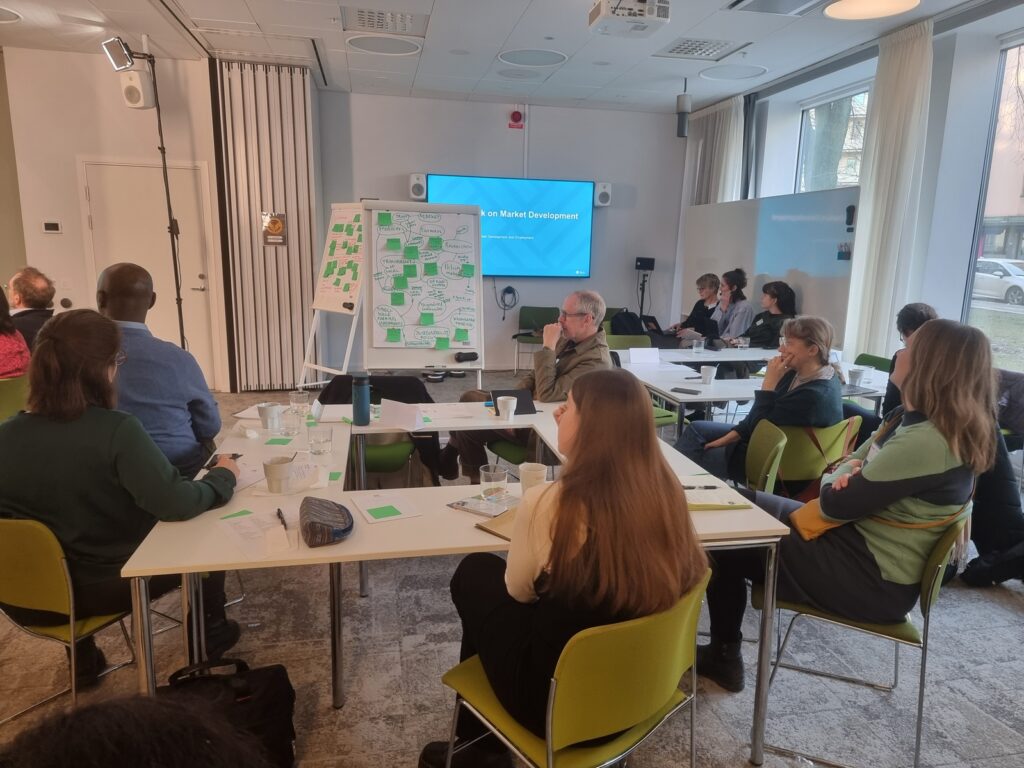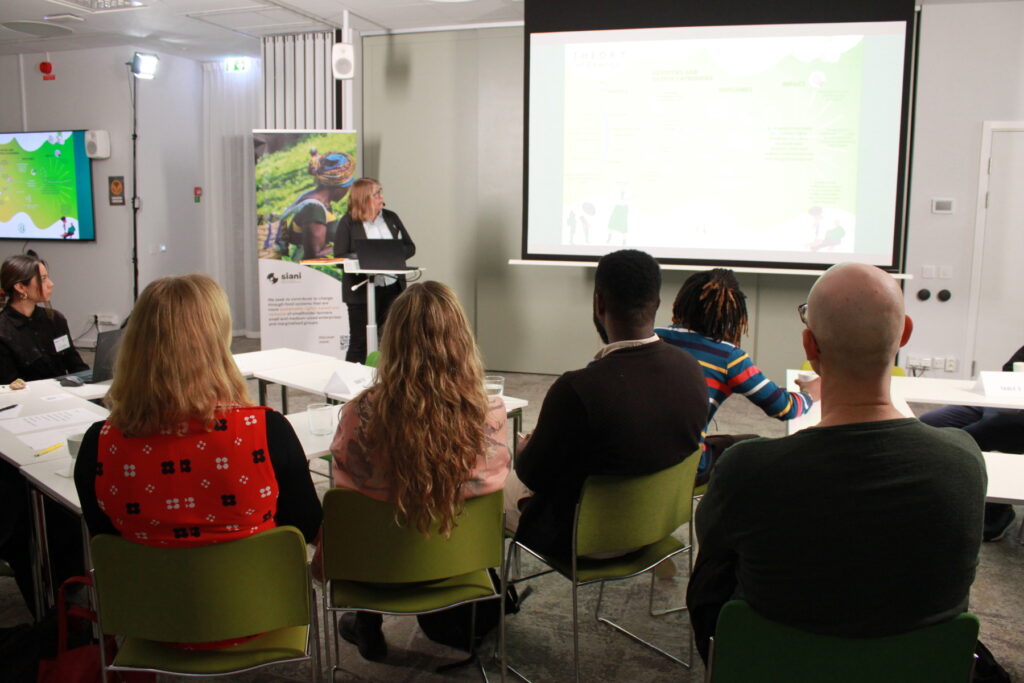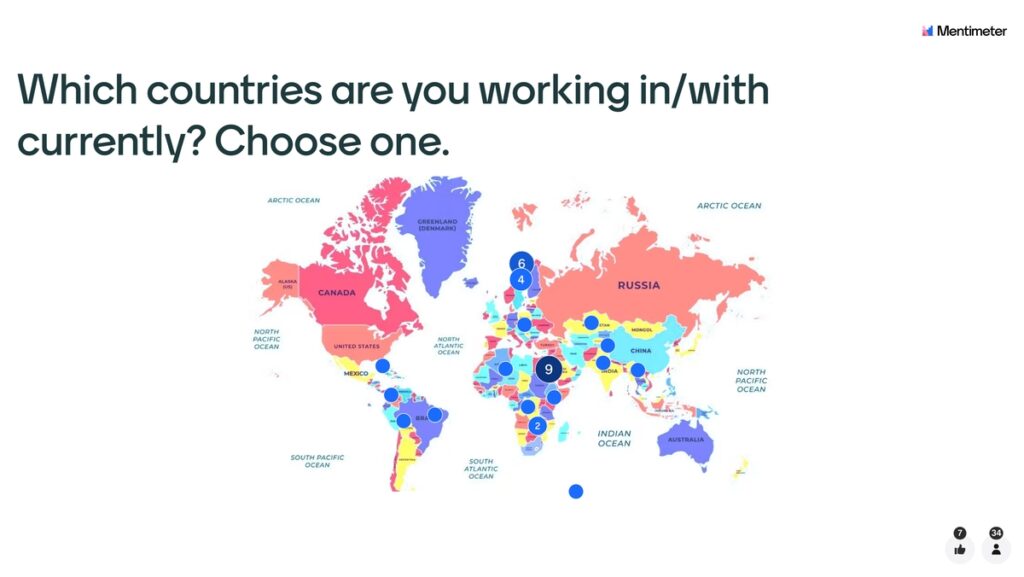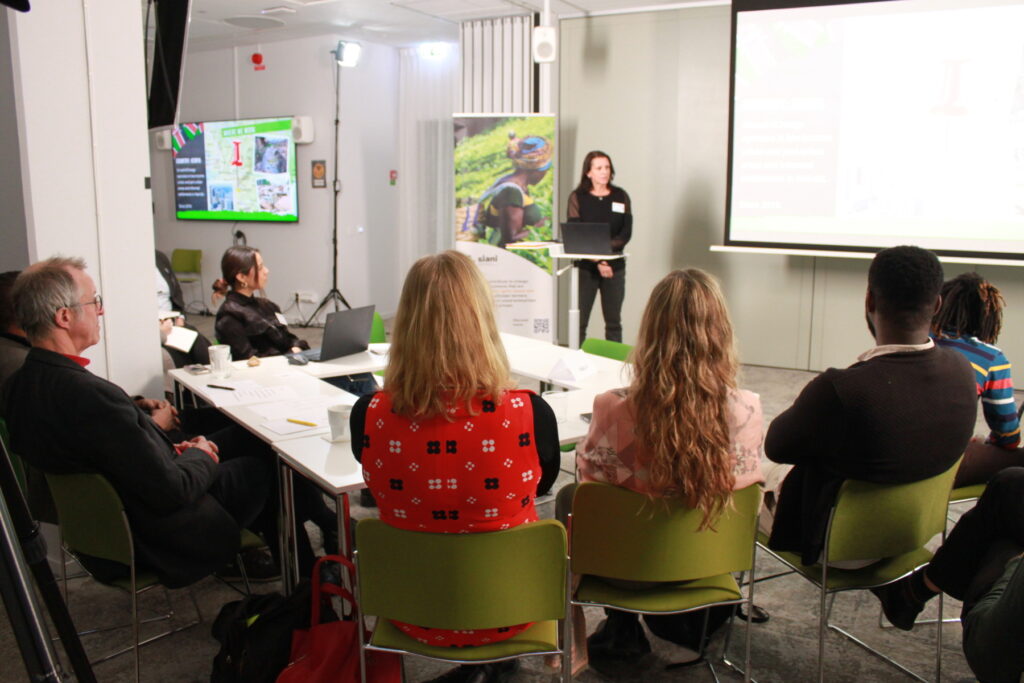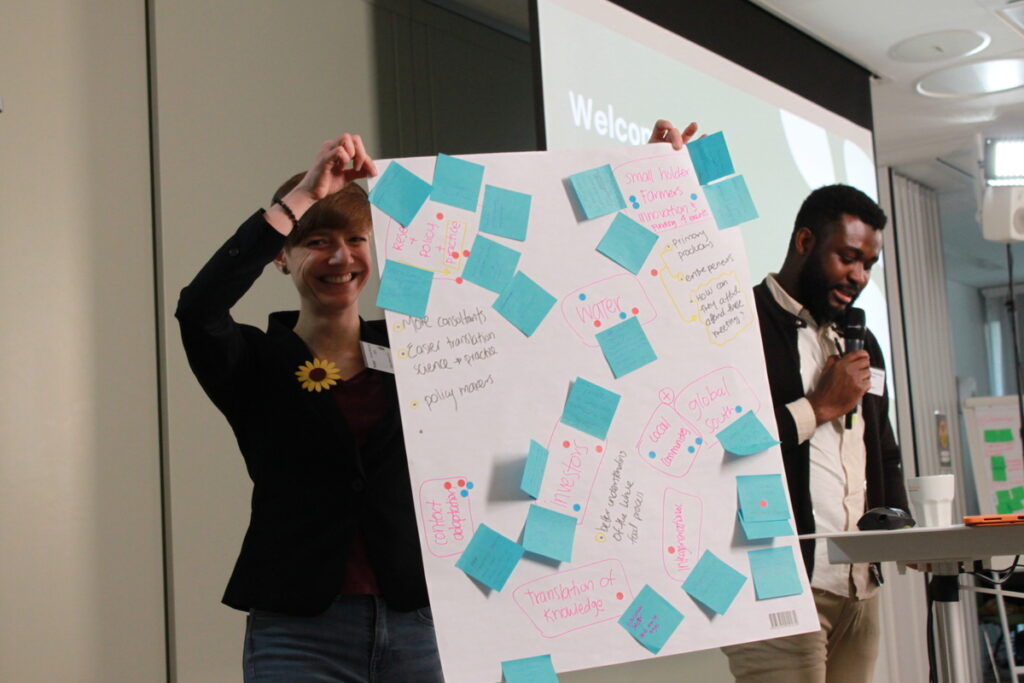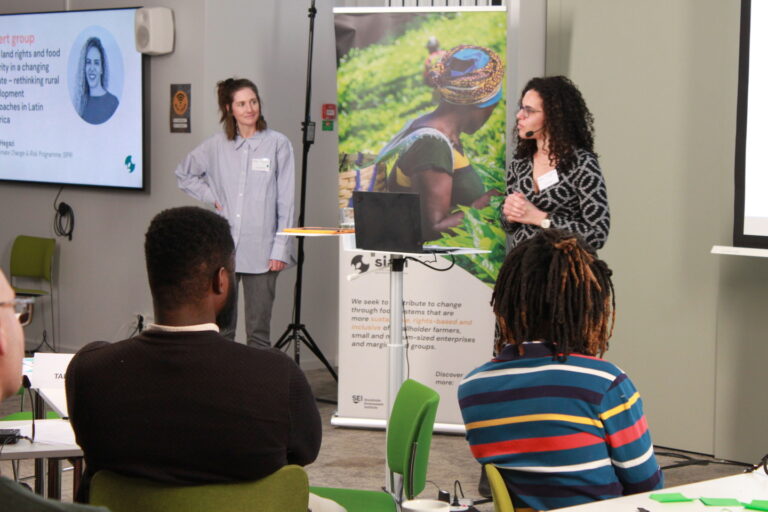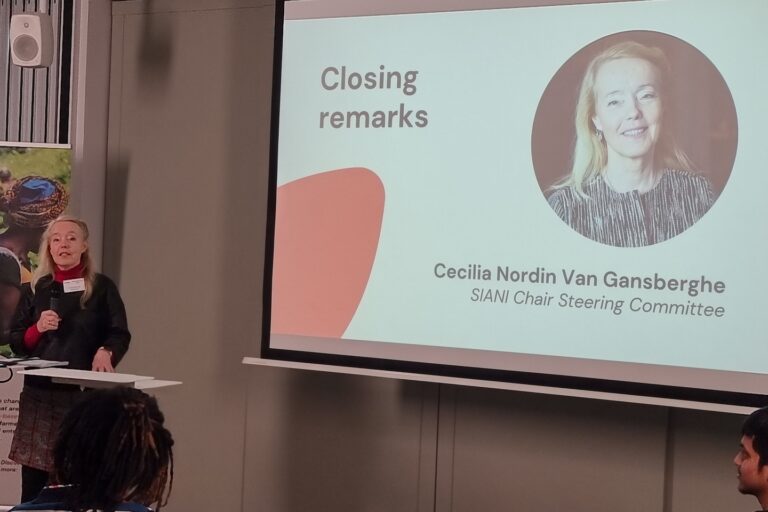On January 31st, it was time for SIANI’s annual meeting. Over 50 SIANI members and partners gathered in person in Stockholm to discuss sustainability, food security, and new solutions to the challenges posed by urbanisation, rural development, and food security. The theme for this year’s meeting was the impact of rapid urbanisation on food systems, particularly in urban, peri-urban, and rural areas, along with how the SIANI network can gather to identify the appropriate ways to move forward in acting on these issues.
The SIANI Programme Director, Madeleine Fogde offered an update on the current state of food security and the way it has worsened compared to last year’s annual meeting. Madeleine emphasized that, despite the unfavourable circumstances, these meetings are essential and that participants must build on them. Madeleine said:
“Conflicts, macroeconomic crisis, climate events, continue to be main drivers for this (food insecurity). Even in Sweden, the news yesterday reported that if anyone were to boycott the country, we would only have enough food to last for three days. This highlights the fact that Sweden does not have a solid food system in place.”
